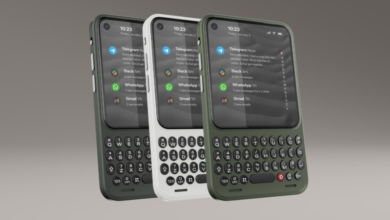
In a surprising move, three of the biggest names in tech—Mark Zuckerberg (Meta), Elon Musk (X), and Sam Altman (OpenAI)—have all said that the age of smartphones might be coming to an end. That’s right—those little screens we all carry in our pockets could soon be replaced by new, more advanced technology. But not everyone agrees. Tim Cook, the CEO of Apple, isn’t quite ready to ditch the iPhone yet.
Let’s break it all down in a way that makes sense, even if you’re not a tech expert.
What’s Happening with Smartphones?
For years, smartphones have been the hub of our digital lives. We use them to talk to friends, scroll social media, watch videos, and play games. But technology doesn’t stand still. Now, big tech leaders like Zuckerberg, Mus,k and Altman think we’re moving towards a future where smartphones aren’t the primary way we interact with the digital world.
So what comes next?
Mark Zuckerberg’s Vision: Glasses, AI, and Virtual Worlds
Mark Zuckerberg is the CEO of Meta (formerly Facebook), and he’s been working on smart glasses and virtual reality for a long time. His goal? To create a world where we don’t need to pull out our phones to check messages or scroll TikTok. Instead, we’ll wear glasses that can do all that—and more.
Zuckerberg believes the future is about spatial computing. That means digital things will appear around us in the real world, not just on a screen. Think of it like wearing glasses that can show you directions, messages, or even play a YouTube video in the air in front of your eyes.
These aren’t just science-fiction ideas. Meta already sells products like the Ray-Ban Meta Smart Glasses and the Quest VR headset. These devices are just the beginning.
Zuckerberg’s idea: A world where we don’t carry screens—we wear them.
Elon Musk’s Plan: Brain Chips and Hands-Free Devices
Elon Musk, the CEO of Tesla and SpaceX, also owns a company called Neuralink. This company is working on brain-computer interfaces. Sounds wild, right?
Here’s what that means: tiny chips that go in your brain to help you control devices with your thoughts. It might sound scary, but Musk says this could help people with disabilities, and even change how all of us use technology.
Imagine not needing to type or swipe anymore. You just think about opening Instagram, and it opens. That’s what Musk is working on.
While this kind of technology is still being tested, it shows just how far people like Musk are thinking beyond smartphones.
Sam Altman’s Vision: AI That Talks to You Like a Friend
Sam Altman is the CEO of OpenAI, the company behind ChatGPT. He believes artificial intelligence (AI) will replace the need for many apps we use on our phones.
Instead of using Google to search or typing out a message, you’ll just talk to an AI assistant. It will understand what you want and do it for you.
Some companies are already building this into new gadgets. For example, the Humane AI Pin and Rabbit R1 are two small devices that don’t have screens but let you ask questions and get answers through voice.
Sam Altman’s vision: You won’t need an app for everything—you’ll just talk to your AI.
What About Apple?
While all this sounds exciting and futuristic, Apple isn’t jumping on the “no smartphone” train just yet.
Tim Cook, Apple’s CEO, believes the iPhone still has a lot of life left in it. In fact, Apple continues to sell millions of iPhones every year and still makes new models with better cameras, faster chips, and cool new features.
Apple is also working on its own high-tech products, like the Apple Vision Pro—a super advanced headset that lets you experience virtual reality and augmented reality. But Cook says it’s not meant to replace the iPhone. Not yet, at least.
In a way, Apple is playing it safe. They’re waiting to see how people react to all this new tech before making big changes.
Why Are Tech Giants Moving Away from Smartphones?
There are a few big reasons why tech companies think it’s time to move on:
-
Screens Are Limiting: Phones are small. Even with big screens, we’re always staring down at them and tapping away. That’s not very natural.
-
Hands-Free Is Better: Wouldn’t it be easier to just speak a command or use your eyes and hands to control devices in the air?
-
AI Is Smarter Now: With powerful AI like ChatGPT, you don’t need to search or type as much. You can just ask a question, and AI will figure it out.
-
New Experiences: Virtual and augmented reality can give us amazing experiences that a phone never could—like feeling like you’re actually inside a game or chatting with a 3D avatar of a friend.
Are Phones Really Going Away?
Here’s the truth: Smartphones aren’t disappearing tomorrow. They’re still super useful and almost everyone owns one. But things are starting to change.
Zuckerberg, Musk, and Altman are trying to show us what the future could look like. It might take 5 or even 10 years, but they’re building new devices and systems that could eventually replace the phones we use today.
It’s a bit like how we moved from big desktop computers to laptops, then to smartphones. Now, the next step might be smart glasses, brain-computer interfaces, or wearable AI gadgets.
What Could Replace Smartphones?
Let’s look at some of the new technologies being built:
1. Smart Glasses
These look like regular glasses but have small cameras, speakers, and displays built in. You can take photos, get directions, and even see messages right in front of your eyes. Meta and other companies are making these now.
2. AI Pins
These are tiny devices you wear on your clothes. You talk to them, and they use AI to help you—like a super smart assistant. The Humane AI Pin and Rabbit R1 are examples.
3. Brain Chips
Neuralink wants to connect your brain directly to your devices. You could send a message, move a cursor, or play music just by thinking. This is still in early testing, but it’s a big deal.
4. Augmented Reality (AR) Headsets
Apple, Meta, and others are building headsets that mix the digital world with the real one. You could play a game on your coffee table, or have a video call where it feels like the person is sitting next to you.
What Are the Challenges?
Even though all this sounds cool, there are still some big problems to solve:
-
Price: New tech is often expensive. Not everyone can afford smart glasses or AR headsets.
-
Privacy: Devices with cameras and microphones everywhere could record a lot. That raises questions about safety and privacy.
-
Battery Life: Tiny gadgets don’t have big batteries, so keeping them charged is hard.
-
Social Acceptance: Not everyone wants to wear glasses or pins all day. It will take time for people to get used to them.
So, What’s Next?
The battle for the future is just beginning. Mark Zuckerberg, Elon Musk, and Sam Altman are betting on a world without smartphones. They’re building the tools to make that happen—smart glasses, brain chips, and powerful AI assistants.
But Tim Cook and Apple are still focused on making the iPhone better. They think people aren’t ready to give up their phones just yet.
Who will be right? Only time will tell.
One thing’s for sure—the next few years in tech are going to be exciting. Whether we end up with glasses that show us our texts or AI friends that know everything about us, the future is getting closer every day.
Final Thoughts
If you’re 15 right now, there’s a good chance that by the time you’re 20 or 25, the way you use technology will be completely different. You might not even need a phone anymore.
Instead, you’ll wear your tech, talk to it, and live in a world where the digital and real are blended together.
Stay curious, because the future of tech is being built right now—and you’re going to be a big part of it.





